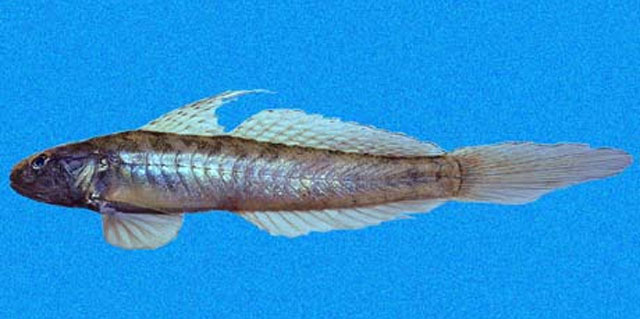| Gobiidae (Gobies), subfamily: Gobionellinae |
| 18.4 cm SL (male/unsexed) |
|
demersal; freshwater; brackish |
| Eastern Central Pacific: from Sonora, Mexico to Guayaquil, Ecuador; including freshwaters (above tidal influence) of Rio Grande at Miraflores in Panama. |
|
Dorsal spines (total): 6-6; Dorsal soft rays (total): 12-14; Anal spines: 1-1; Anal soft rays: 13-14. This species differs from its congeners by the following characters: mouth terminal and slightly oblique; upper pectoral fin base dusky, not dark; a large dark patch above the pectoral fin base on trunk just beneath nape, most distinct in males and large females; second dorsal fin with 13 elements, anal fin with 14 elements; the first and second dorsal fins are not broadly connected; small ctenoid scales on the body posteriorly, with cycloid scales limited to anteriormost portion of trunk, 50-73 in a lateral series; nape with many small scales; first gill arch with 8 thin rakers on ceratobranchial and 7 on epibranchial; third transverse suborbital row of free neuromasts on cheek extending dorsally above horizontal midcheek row ‘b’, usually to orbit; horizontal midcheek row ‘b’ not extending forward beyond third transverse suborbital row (Ref. 55435). |
| Inhabits estuaries and brackish mangrove creeks. Also recorded from rivers (Ref. 45915). |
|
Least Concern (LC); Date assessed: 08 November 2018 Ref. (130435)
|
| harmless |
Source and more info: www.fishbase.org. For personal, classroom, and other internal use only. Not for publication.

